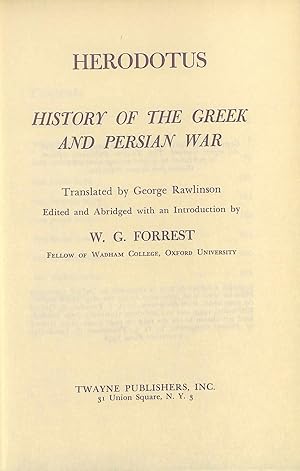

The volumes are named after the Greek Muses: Clio, Euterpe, Thalia, Melpomene, Terpsichore, Erato, Polymnia, Urania, and Calliope. In response, Herodotus explained that he reported what he “saw and (what was) told to him.” A sizable portion of the Histories has since been confirmed by modern historians and archaeologists. The later historian Thucydides, who reportedly spoke to Herodotus as a youngster, later accused him of making up stories for entertainment. Herodotus has been criticized for his inclusion of “legends and fanciful accounts” in his work. Herodotus, however, did what no one else had even thought to do before in the history of the world-to systematically set down the progression of events as he knew them and to try to give reasons for them. History as a systematic synthesis of events While providing readers with a wellspring of additional information, these tales have sometimes caused scoffers to also call Herodotus “The Father of Lies,” when not all of his details meshed with later observation. Perhaps most interestingly, however, his work departs significantly from the main topics to provide cultural, ethnographical, and geographical background that forms an essential part of the narrative. The nine books of the Histories primarily cover the lives of prominent kings and famous battles which decided the fate of the West, such as Marathon, Thermopylae, Artemisium, Salamis, Plataea, and Mycale. By his genius, the spirit of history was born into Greece. In the end, he portrayed the drama of the great collision between East and West. These conflicts showed him that there was a corporate life, higher than that of the city, of which the story might be told.

The Greco-Persian Wars had afforded Herodotus the first genuinely historical inspiration felt by a Greek person. Cicero dubbed Herodotus “Father of History”īorn in the Greek city of Halicarnassus (present-day Bodrum, Turkey), which was then part of the Persian Empire, the great man has been referred to as “The Father of History” since ancient Roman orator Cicero conferred the title on him.īefore the Persian crisis, Greeks recorded history mostly as part of local or family traditions. And then there is the sheer narrative power of his writing…The old master keeps calling us back. He goes from the cosmos to the atom, ranging between fate and the gods, on the one hand, and the ability of the individual to make a difference, on the other.


 0 kommentar(er)
0 kommentar(er)
